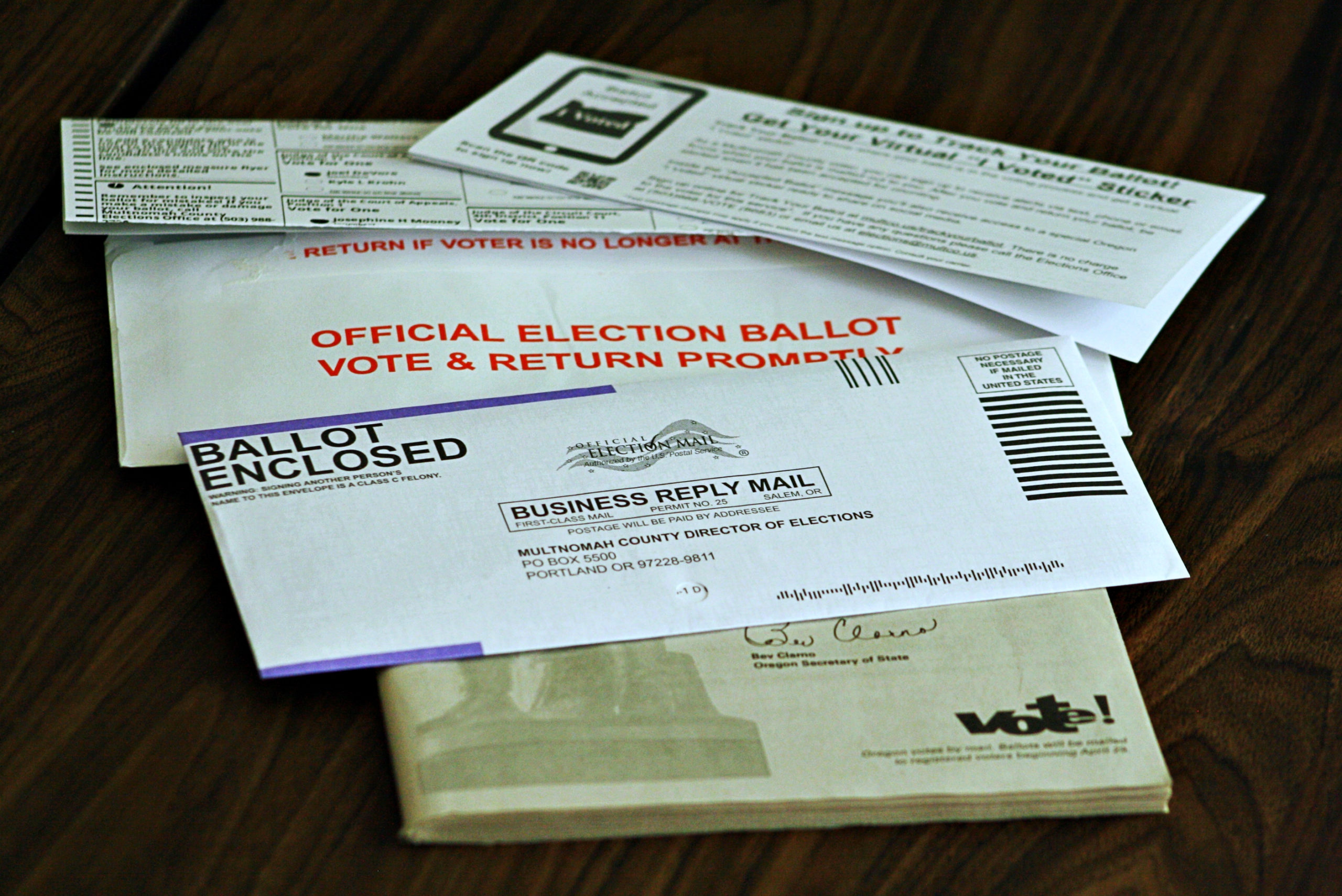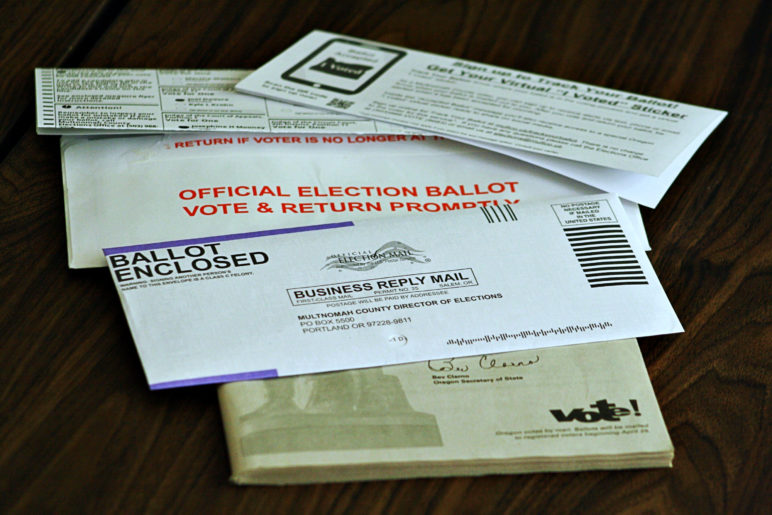The United States Supreme Court earlier this week refused to decide on a Pennsylvania Supreme Court ruling that allowed the state to count ballots postmarked on November 3 and received three days later. For the moment, that means Pennsylvania ballots postmarked by Election Day and received through November 6 could be counted. The opinion may have looked like a win for voting rights in a battleground state that has, for years, struggled with its tight deadlines and disenfranchisement. But it’s too early to celebrate.
Three justices—Samuel Alito, Clarence Thomas and Neil Gorsuch—in an opinion said they could still reconsider the reversal after the election. And if they do choose to side with the Pennsylvania Republican Party, ballots that arrived after November 3 could be tossed out. The state plans to separate out those ballots in case it needs to discount them after a Supreme Court ruling.
With the new SCOTUS opinion, the door is left open for a reversal—and Pennsylvania voters mailing their ballots this close to Election Day risk having their votes eventually tossed out.

“I reluctantly conclude that there is simply not enough time at this late date to decide the question before the election,” Justice Alito wrote. “That does not mean, however, that the state court decision must escape our review. … The Court’s denial of the motion to expedite is not a denial of a request for this Court to order that ballots received after election day be segregated so that if the State Supreme Court’s decision is ultimately overturned, a targeted remedy will be available. “
As a reminder, state officials have been trying to fix Pennsylvania’s deadline problem for years. The deadlines are so tight, the vast majority—94 percent—of ballots not counted in the 2018 midterm were rejected due to missing a deadline, according to the US Election Assistance Commission. The number of rejected absentee ballots has spiked over the years. In 2018, Pennsylvania rejected more than 4 percent of all absentee ballots—high above the national average rejection rate of 1 percent. Add a pandemic and delays with the US Postal Service, and state officials warned of massive voter disenfranchisement this November if they didn’t change their election laws.
The Pennsylvania Supreme Court in September ruled that the state should be allowed to count ballots arriving three days after polls close. The state Republican Party challenged that ruling to the US Supreme Court, urging justices to reverse the decision from the state’s highest court.
With the new opinion, the door is left open for a reversal—and voters mailing their ballots this close to Election Day risk having their votes eventually tossed out.
Sightline Institute is a 501(c)3 non-profit organization and does not support, endorse, or oppose any candidate or political party.
Hayat Norimine, research contributor, is a freelance writer who grew up in Washington on the border of Idaho. She previously covered city halls and politics for The Dallas Morning News, Seattle Met magazine, and The Daily News in Longview, Washington. She has an MA in journalism from the Medill School of Journalism and a BA in English from the University of Washington. For Sightline, she researches and writes about democracy reform and elections issues and reports on fossil fuel proposals along the Thin Green Line.
For press inquiries and interview requests, please contact Anna Fahey.












Buzz
It isn’t disenfranchisement if the voter themselves don’t get the ballot into the mail by the required deadline. Mail it late and it’s on you.
adultintheroom
The statutory “required deadline” is 8pm November 3rd. So mailed by then and received a few days later should count. The voter can’t control over how long the USPS takes to deliver it, especially with Trump’s henchman DeJoy and his minions slowing things down.
Frankie J
Everyone should be able to submit their vote on Nov 2nd. Why should they have to do it earlier? Post markets by Novembee 2nd is just fine. Although as a betting person my belief is this is a very small population of votes.
Judi labinson
I believe it is each individual persons responsibility to mail in their ballot on time. Everyone has known about this Election Day all year! Do they pay their rent, mortgages and other bills on time? It’s unacceptable to have Pennsylvania or any state be given extra privileges by giving them extra days to count ballots. I have lost faith in our judges and the US Supreme Court.
adultintheroom
When the USPS under Trump henchman DeJoy and his minions have been slowing the mail down, and especially after the recent announcement that they wouldn’t guarantee timely delivery, extending the receipt deadline was the correct thing to do. Also, Act 12 of 2020 (passed by the Republican legislature) says that the voter must mark the ballot and put it in the official envelopes, including the completed and signed declaration, by 8pm November 3rd. It says nothing about when the ballot must be received.
Ruth M. Tauber
I see no reason why anyone should be unable to mail their ballot on time, unless they have been incapacitated by unforeseen circumstances, or possibly, having to mail from out-of-state. It is difficult to believe that a high percentage of Pa vote-by-mail citizens were
in that position. Students who hand in assignments late generally see grade points deducted from their score.
It’s a matter of personal responsibility.
Ron
How is it these ballots always arrive for Democrats in the wee hours of the morning, just after the deadline? It has never been easier to vote early, but somehow Democrats can only get their hundreds of thousands of ballots for Biden just after the polls are supposed to be shut down, or in the wee hours of the morning. Is a month “too tight of a deadline” to vote in person, or fill out a 2 page ballot? I prepared to vote well in advance, in person, and had no problems. It’s important to me, I make time to vote. The Democrats have turned our country into a banana republic! Election laws were created for a reason, and were to prevent clusters like what were seeing now. PA residents, I urge you to call your state representatives, and ask how they are allowing this to happen!
Esmee
People do not have control over their ballot being delayed because the postal service was undermined and knee capped by Trump and Postmaster DeJoy.